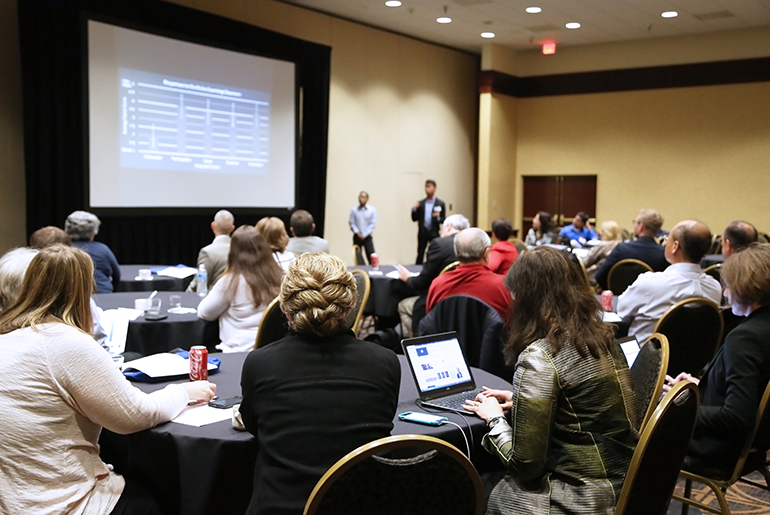
Educators from across the United States and Mexico gathered in College Station March 30 -April 1 to explore how to help engineering students successfully make the transition from their sophomore to junior years, during which the emphasis shifts from core engineering classes to discipline-specific, professional preparation coursework.
The Mid Years Engineering Experience Conference (MYEEC) showcased two keynote addresses and nearly 30 presentations—all focusing on new ways to engage engineering students so they not only survive the typical “sophomore slump” but also achieve great success as students and professionals. The Dwight Look College of Engineering at Texas A&M University and the Texas A&M Engineering Experiment Station (TEES) hosted the MYEEC.
Keynote speaker Dr. Chuck Krousgrill, a mechanical engineering professor at Purdue University, introduced his highly interactive teaching approach for large engineering classes called Freeform. With Freeform, students create their own textbooks throughout the semester while also interacting with other students and faculty online, and accessing hundreds of instructional videos and animations to help guide their studies. This creative approach has another benefit: the rate of Freeform Basic Mechanics II students who received Ds and Fs, or who withdrew altogether, dropped from 21 percent in 2009 to 9 percent in 2014.
“With Freeform, students are much more actively engaged in learning than they would be by simply listening to a faculty member lecture,” said Krousgrill. “And when students have to create their own textbooks, they have to work together and with faculty to find solutions to the presented problems because there are no formal solution manuals to be found.”
The MYEEC’s second keynote featured Dr. Catherine Didion, formerly with the National Academy of Engineering. Didion encouraged MYEEC participants to embrace opportunities to be more creative and involved in their work with students.
“Cohorts, mentors, advisors and summer bridge programs are necessary for student success,” said Didion. “We also need to create safe places for engineering faculty to seek clarity and ask questions.”
“We want MYEEC to be one of those safe places,” said Dr. Teri Reed, assistant vice chancellor of academic affairs for Texas A&M’s college of engineering and assistant agency director of workforce development for TEES. “At MYEEC, we create a safe and engaging environment where engineering educators come together to learn new things, ask questions and return to their institutions motivated and prepared to inspire the next generation of engineers.”
